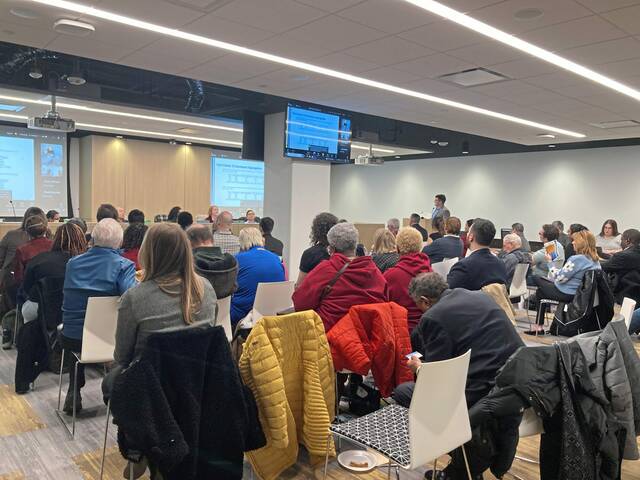The following op-ed appeared in TribLIVE on July 15, 2025.
Ten years ago, in June 2015, the city of Pittsburgh’s first ever Affordable Housing Task Force met for the first time. I was one member of the Task Force, along with members of City Council and other elected offices, local housing developers, building trades and organized labor, as well as other practitioners and housing advocates, with support from national experts. Our charge was to make recommendations about new initiatives to “promote mixed-income development in neighborhoods across the city and ensure a vibrant mix of housing options for people of all income levels.”
During the task force’s time, the saga of the mass evictions of Penn Plaza residents would capture the region’s attention and demonstrate the stakes of the affordable housing crisis we were aiming to address. In May 2016, we issued our findings and recommendations to then-Mayor Bill Peduto and City Council. A number of the recommendations have since been implemented, including the creation of the Housing Opportunity Fund, which has been incredibly successful, and a lot of good work on the preservation of existing affordable housing.
Yet a decade later, with our housing crisis only deepening and the current administration in Washington, D.C., gutting funding for affordable housing, I have to wonder how much longer we have to wait for our local elected officials to enact one of our four recommendations: a citywide inclusionary zoning (IZ) policy.
As we emphasized in our report, like many cities, Pittsburgh has deep and historic racial and economic divisions. Research shows that where a child grows up is more predictive of their opportunities in life than even the income of their parents and addressing this segregation requires intentional policy-making. In the words of our report, “mixed income communities do not come about by chance, nor generally does the housing market ‘naturally’ create mixed-income housing developments.”
While far from a panacea, by requiring and incentivizing new private housing development to include affordable units, IZ is particularly well-suited for sharing the benefits of Pittsburgh’s growth with everyone, producing new affordable housing in high-opportunity neighborhoods and building workforce housing close to jobs. Local implementation in a handful of neighborhoods like Lawrenceville and Oakland has shown promise for achieving these goals, demonstrating that IZ can produce affordable housing in high-demand neighborhoods, while not deterring much-needed new housing. Yet another inclusionary housing project in Lawrenceville, bringing 334 housing units and 34 affordable units, just broke ground last week.
Mayor Ed Gainey’s citywide ordinance, proposed as part of the Implementing the Housing Needs Assessment package almost a year ago, would build off this success and complete our recommendation of adopting a citywide program. Despite overwhelming public support in favor of this approach, as demonstrated by the Pittsburgh Planning Commission’s longest hearing on record in January, the ordinance still remains unmoved at council in the face of a highly vocal but small opposition of private developers and their allies.
Thankfully earlier this month City Council dispatched with an alternative proposal, so the path now remains clear for City Council to take action. I encourage council to move with haste to pass the remainder of the city’s zoning package, including mandatory citywide inclusionary zoning. Ten years has already been too long for Pittsburghers to wait.
Mark Masterson is executive director of the Neighborhood Community Development Fund.
